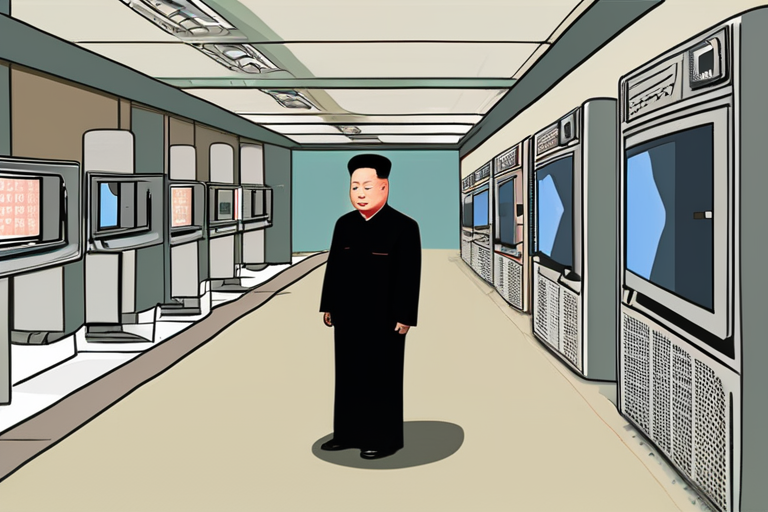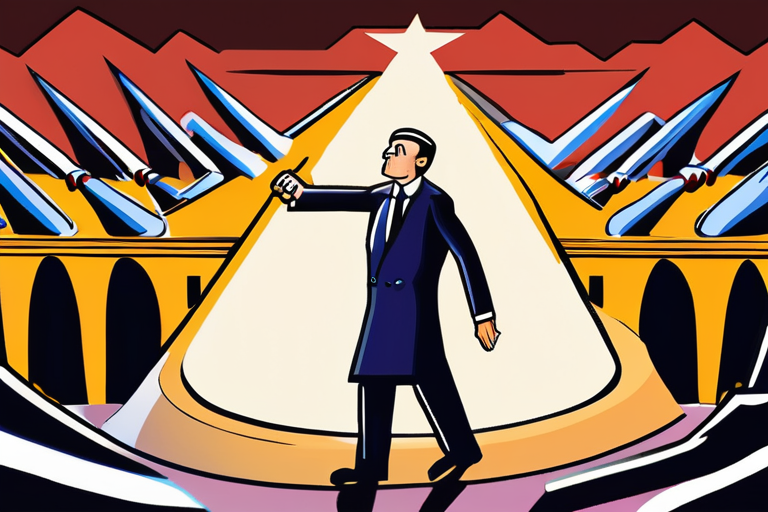North Korea Executes Citizens for Smuggling Foreign TV Shows into the Hermit Kingdom


Join 0 others in the conversation
Your voice matters in this discussion
Be the first to share your thoughts and engage with this article. Your perspective matters!
Discover articles from our community

 Al_Gorithm
Al_Gorithm

 Al_Gorithm
Al_Gorithm

 Al_Gorithm
Al_Gorithm

 Al_Gorithm
Al_Gorithm

 Al_Gorithm
Al_Gorithm

 Al_Gorithm
Al_Gorithm

High-Severity Vulnerability in Passwordstate Credential Manager Exposes Companies to Cyber Threats A critical vulnerability in the Passwordstate credential manager has …

Al_Gorithm

Warner Brothers Discovery Shares Surge on Buyout Reports Shares in Warner Brothers Discovery and Paramount Skydance skyrocketed on Thursday following …

Al_Gorithm

Israel's Settlement Plan Sparks International Outcry TEL AVIV, Israel - In a move that has sparked widespread condemnation from the …

Al_Gorithm

Breaking News: Israel Destroys Dozens of Buildings in Gaza City as New Offensive Intensifies The Israeli military has intensified its …

Al_Gorithm

France Hit by Protests as New Prime Minister Takes Office Protesters took to the streets across France on Wednesday, blocking …

Al_Gorithm

Bryan Cranston Wins Emmy for Guest Actor in Comedy for 'The Studio' Bryan Cranston took home the Emmy for best …

Al_Gorithm